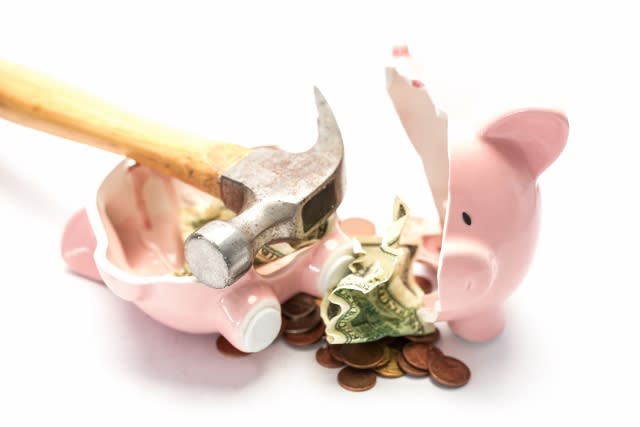Are Americans Neglecting Their Piggy Banks?
Source: Thinkstock
When it comes to personal finance in America, perhaps the only situation worse than the ongoing retirement crisis is the troubling status of savings accounts. Placing money aside for unexpected expenses is a prudent way to become less dependent on debt, but many people are struggling to build a sufficient amount of savings.
Read more: 5 Factors to Look at When Buying a Retirement Home
Americans are certainly living up to their poor reputations. A recent survey from RetailMeNot found that while a majority of consumers have some kind of a financial safety net, 48 percent don’t have enough savings to last more than one month without an ongoing source of income. Only 28 percent of respondents had enough savings to last one to six months, and 16 percent said their savings would last six to twelve months. Making matters worse, 25 percent of people with a savings account don’t even know how much is in it.
Read more: 5 Ideal Jobs for Retirees
Saving money can be a difficult process with rising living expenses, but starting small is one of the easiest ways to get started. “Despite what you might think, you can save. If you have absolutely no wiggle room in your budget to put money aside, consider cutting back on a few little luxuries, like your weekly manicure, monthly car wash, or prime cable channels. Each time you skip a luxury, funnel that money into your savings account.” If you already have room in the budget to save, but simply fail to do so, try automating your savings by setting up direct contributions with your bank accounts.
Read more: 4 Top Ways to Avoid Tax Pain at Retirement
Aside from improving your financial health, saving money is good for your emotional state. A survey from Ally Bank found that saving money is one of the best habits people can take to increase happiness. Among those polled with savings accounts, 38 percent of people said they felt extremely or very happy. In comparison, only 29 percent of those without savings accounts felt the same way. Overall, 84 percent of people said saving money makes them feel good — ahead of eating healthy at 74 percent and enjoying work at 68 percent.
The more you save, the more likely you are to be happy. Of those who said they felt extremely or very happy, 34 percent had less than $20,000 in savings, while 42 percent had $20,000 to $100,000 in savings. Furthermore, 57 percent who felt happy had $100,000 or more in savings. “The connection between the size of your savings account and your level of happiness may seem obvious. But here’s something that may surprise you: saving money actually affects happiness more than how much you earn, according to our survey,” explained Ally Bank.
More From Wall St. Cheat Sheet:


